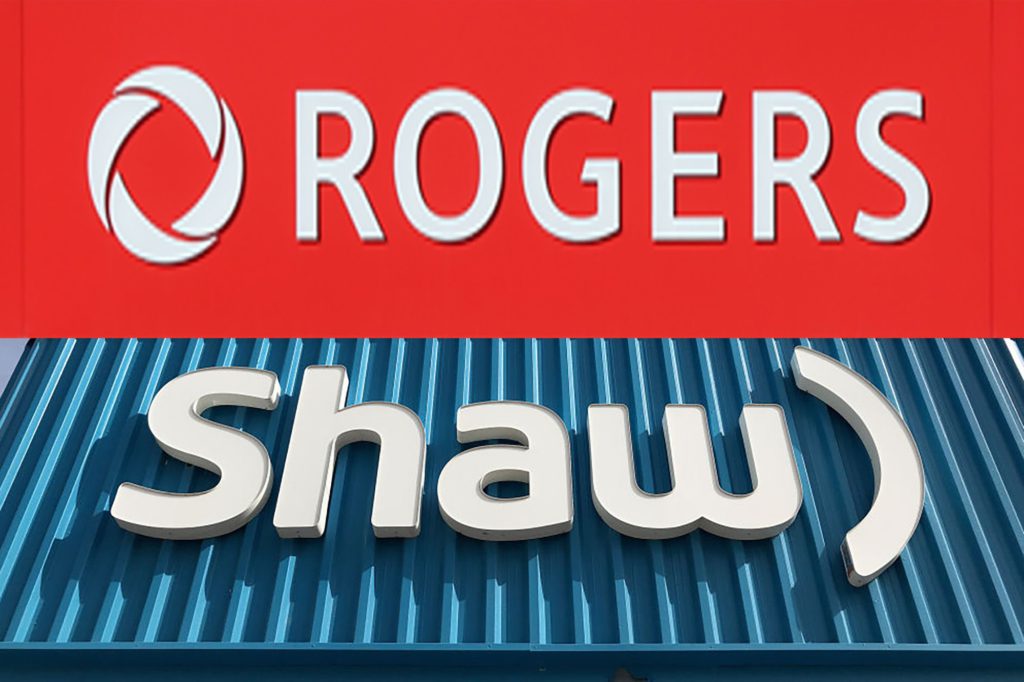(Bloomberg) — Rogers Communications Inc. said Canada’s antitrust agency is opposed to its C$20 billion ($16 billion) takeover of rival Shaw Communications Inc., casting significant doubt on whether the companies will be able to close one of the country’s biggest-ever deals.
The companies extended the deadline for the transaction to July 31, from June 13, and said they remain committed to it.
But the Canadian Competition Bureau’s move to file applications against the deal raises the prospect they’ll have to win a court battle to get it done.
Rogers, Canada’s no. 1 wireless and cable provider, agreed to buy Shaw for C$40.50 a share last year in the company’s biggest takeover to date.
The wireless business is the key sticking point for regulators. Shaw’s Freedom Mobile unit is the fourth-largest competitor with a presence in several major urban markets, including Toronto and Vancouver.
Rogers already has more than 11 million wireless customers — about 30% of Canada’s population.
Rogers hired Barclays to run an auction for Freedom in the belief that selling it would solve the antitrust problem.
But the companies’ statement early Saturday morning indicates the Competition Bureau isn’t satisfied with the plan. Rogers has been in talks about Freedom with Canadian internet provider Xplornet Communications Inc., according to a person familiar with the matter.
Xplornet, which is controlled by New York-based Stonepeak Partners LP, has played a role in a Canadian telecommunications merger before.
In 2017, BCE Inc.
acquired Manitoba Telecom Services Inc. in a deal that faced major concerns from the Competition Bureau. BCE agreed to divest parts of the business, including stores, spectrum and some customer accounts, to Telus Corp.
and Xplornet to win approval.
Dwayne Winseck, a professor at Carleton University who was consulted by the government on that deal, called it a “complete disaster” because Xplornet didn’t become a strong wireless competitor.
With Manitoba Telecom no longer around, the wireless market in the Canadian province is now dominated by three companies instead of four.
The bureau’s action against Rogers “is a move informed by its past experience with the Bell-MTS deal, and more broadly with its knowledge of Xplornet and what it takes to create a viable fourth competitor here in Canada that will be in it for the long run,” Winseck said by phone.
The bureau now has to take the case to Canada’s Competition Tribunal, an independent arm of the federal government that deals with mergers and other competition matters.
Rogers and Shaw will oppose the bureau’s application to prevent the deal while engaging with it to find a resolution, the companies said. They will also continue to seek approval from the Ministry of Innovation, Science and Economic Development.
“Rogers and Shaw remain committed to the transaction, which is in the best interests of Canada and Canadians because of the significant long-term benefits it will bring for consumers, businesses and the economy,” the companies said in the statement.
In March, the Canadian broadcast regulator approved Rogers’ purchase of Shaw’s cable television assets, but it still needs the green light from the competition watchdog and the federal government.
Rogers shares have fallen 7% in the past month and Shaw has dropped nearly 4% amid a lack of information about the regulatory-approval process and a broad selloff in equity markets.
(Updates with additional information on Xplornet beginning in the fourth paragraph)
More stories like this are available on bloomberg.com
©2022 Bloomberg L.P.











